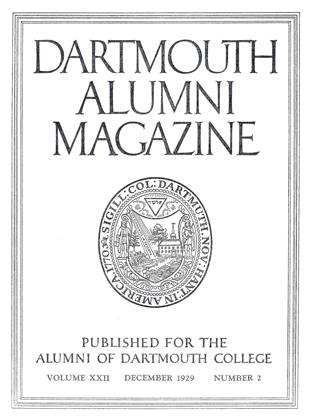Psychology as a new biological science is an idea that may be hard to grasp. The fact is, however, that modern psychology is committed to the laboratory and the use of scientific experimental techniques. It has devised an experimental technique for tests of that elusive variable known as "Intelligence." A study of the transition from the crude beginnings presents an astounding advance from the raw army tests to our modern tests for scholastic aptitudes. In the field of learning, controlled methods are employed to make data meaningful, and not inferential. The emotions, crude and cultured, are studied directly and indirectly. Even the abstract, acquired abilities, as appreciation of art, e.g., have been put to test. Then, of course, there remains a vast experimental literature on the functioning of the sense organs through which the various data of everyday "experience" are supplied.
In such measure as this program is adhered to, psychology is a science. It is at work cleaning its house of the discarded theories of phrenology, imagery-types, and of the grossly mistaken concepts of the "unconscious mind," the "group mind," and of the various "faculties." It has constructive fact to replace these thin devices of speculation.
In all this, there resides a biological science. Some find too much theory, failing to grasp the theoretical basis of all knowledge. They doubt that all knowledge is finite, being limited to man's sensitivity to it, and awaiting man's cleverness in devising instruments suited to that type of study. The science of psychology is engaged at present in trying to invent those instruments and techniques, and to throw out of court those false methods, as phrenology, palm-reading, astrology, and other pseudo-sciences.
Fortunately, the majority of our students are willing to look beyond the meager horizon of the pseudosciences. They are more and more showing a willingness to study psychology for what it really is: the science of human behavior.
 View Full Issue
View Full Issue
More From This Issue
-
 Class Notes
Class NotesCLASS OF 1923
December 1929 By Truman T. Metzel -
 Article
ArticleAlumni Associations
December 1929 -
 Article
ArticleAlumni Council Meets in New York
December 1929 -
 Article
ArticleCarnegie Report
December 1929 -
 Article
ArticleThe Dartmouth Indians
December 1929 By Eric P. Kelly -
 Sports
SportsThe Yale Epic
December 1929 By Phil Sherman








